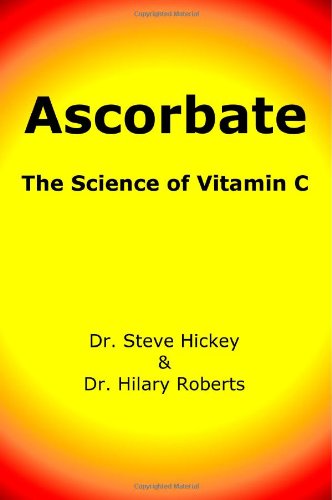Ascorbate: The Science of Vitamin C by Steve Hickey Hilary Roberts


Ascorbate: The Science of Vitamin C download
Ascorbate: The Science of Vitamin C Steve Hickey Hilary Roberts ebook
ISBN: 1411607244, 9781411607248
Page: 264
Format: pdf
Publisher:
Levine's team studied vitamin C (also called ascorbate or ascorbic acid) and cancer cells in lab tests. The authors provide examples of scientists and doctors who have used vitamin C for treatment of heart disease, cancer, AIDS, viral diseases, and polio. Vitamin C is a small molecule, a white The active part of the substance is the ascorbate ion, which can express itself as either an acid or a salt of ascorbate, that is neutral or slightly basic. I also encourage you to eat plenty of foods that contain it. They are all listed under the Foundation Linus was a dual noble prize recipient and an expert in multiple scientific fields, and I take him seriously. Vitamin C intake, and serum and leukocyte ascorbate levels were assessed serially over 6 months in 137 outpatients with Crohn's disease. National Institutes of Health (NIH) & National Academy of Sciences: SODIUM ASCORBATE (Vitamin C). In the Save Our Bones Program I recommend taking a minimum of 500 mg a day of Vitamin C, either ascorbic acid, sodium ascorbate, or the ascorbate bound to other minerals. Melbourne: Scientists have found that Vitamin C does not significantly lower uric acid levels in gout patients as previously believed. Researchers at Mount Sinai School of Medicine have shown that Vitamin C actively protects against osteoporosis, the findings are published in the October online edition of PloS ONE. To the best of scientific knowledge, all animals and plants synthesize their own vitamin C, except for a small number of animals, including guinea pigs, humans, apes, the red-vented bulbul, a fruit eating bat and a species of trout, that cannot. Vitamin C intake was low in 18% of males and 37% of females. Researchers from the University of Otago, Findings show a modest vitamin C dose for eight weeks did not lower urate levels to a clinically significant degree in gout patients, but did increase ascorbate. Scientists of the era of “Better Living Through Chemistry and Science” (which we have been experiencing for the last fifty years) decided to take the discoveries about Vitamin C and“improve” on Mother Nature. First they found that extracting ascorbic acid from natural foods, such as the red Then they found that ascorbic acid worked better as a mineral ascorbate and they worked on that! Suppression of Amyloid β A11 Antibody Immunoreactivity by Vitamin C. In their recent book Ascorbate: The Science of Vitamin C, pharmacology professors Steve Hickey and Hilary Roberts describe the background science needed to understand the controversy. (2004) Ascorbate: the Science of Vitamin C, Lulu press. Vitamin C does not alleviate gout: study. (2004) Ridiculous Dietary Allowance, Lulu press.
Composite Materials Design and Applications download
Foundations of Statistical Natural Language Processing pdf free
Writing Effective Use Cases pdf
